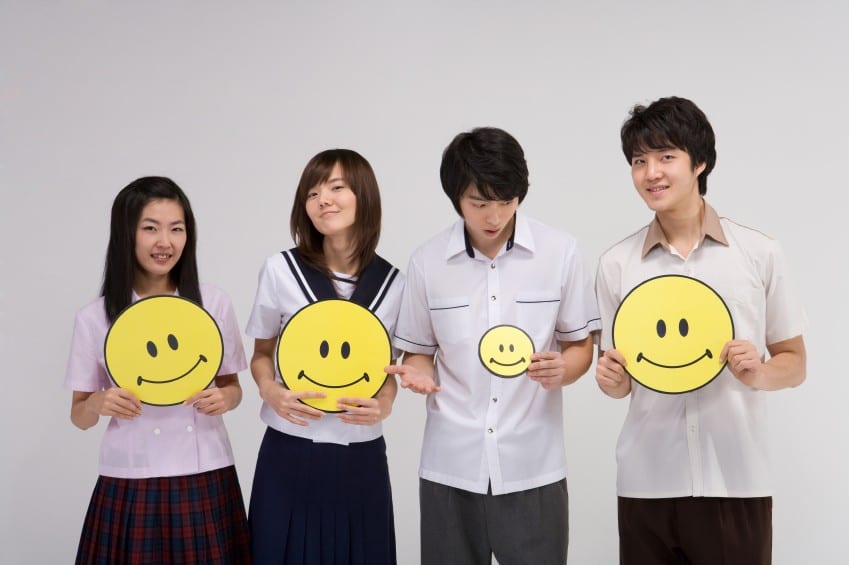If you haven’t already heard, I’m sorry to be the one to break it to you! Teaching English to middle school teens in South Korea is an extremely tricky business. It is difficult, tiring, and can be very disheartening. Now that I’ve gotten the hard truth out of the way, let’s move on to the positives, you can survive, nay, thrive, and even enjoy it if you have the right attitude and are willing to accept truths and vary your approaches.
In every school I’ve ever encountered in South Korea, middle school is the time when students change. My 11-year-old students were so full of life and energy, and then two weeks later, when they transitioned to middle school, I was met with dreary-eyed zombies who had no interest in me, the class, or much of anything anymore. What happened?!
One thing is the transition from non-uniformed, co-educational classes to the typically gender-segregated and uniformed classes. Boys and girls are typically sent to single-sex schools once they reach this age, and it can obviously and understandably produce some consequences in the classroom, especially when the teacher is a foreigner. Additionally, the workload, which is already heavy in elementary school, seems to double (or even triple) once students enter middle school. I once had a girl’s chair fall over when she stood up because of the number of books that she had in her backpack. The pressure and responsibility that is placed upon them are equivalent to the average North American young adult, and these students are trying to cope with it while going through puberty.
Sounds like a recipe for disaster, right? I’m not trying to scare you, but it’s important for new teachers to understand the undeniable reality of the situation. Understanding this and being somewhat mentally prepared for the challenges will even the rough road ahead.
Read More: Online TESOL Certification with Job Assistance in South Korea
So, what can you do to ease this transition for them and still make English class into an opportunity for an outlet? First, accept that not every day will be great, no matter how hard you try. You cannot and will not inspire and move each student to a smile every day. There are so many factors going on behind the scenes, and it will surely be difficult for new teachers not to take this personally.
Students are undergoing so much stress at such a young age, with an increased workload, high expectations, and standardized tests. It is crucial to remember that, even if you are responsible for preparing them for one of these tests, you are still their best option for a fun and exciting release. Realistically, you are the only foreigner they will have interacted with that day. That alone can turn any conversation into a true adventure.
Collaborating with your South Korean co-teacher becomes much more crucial at this stage, as the EPIK co-teacher will have first-hand experience in your students’ newfound attitudes. Asking what works as far as support, discipline, and reward will really help you, and it will save you tons of time and headaches that you’d get from trying to understand for yourself. I found that many middle school students ceased to respect me anymore, as they were required to be diligent and obedient to their Korean teachers throughout the day. Instead of being the ‘mean foreign teacher’, come up with a creative way to grab the class’s attention, through a chant or a clap.
It’s highly unlikely that any of their regular school teachers will be doing this, and again, it gets them physically engaged by using multiple senses. Unlike kindergarten and elementary classes, most middle school students will not be very impressed by games. They will have gotten to the age where it’s uncool to care or try, and even if they don’t have this attitude, many of them will be too tired to participate.
While keeping this in mind, don’t give up on activities. Make the activities more mature in nature and treat the students with the degree of respect that their academic efforts deserve. This worked wonders for me, nearly every time. For example, I showed some of my students YouTube clips of the American show, “Jeopardy”. I explained how the participants were extremely smart and won lots of money for answering the questions quickest. I then created a Jeopardy board on the whiteboard or used the projector to project one on the wall.
Students worked in two teams, each with a different ‘answer call’ (I.e drumming their hands, whistling, etc.) to complete grammar patterns, answer trivia within these grammar patterns, or create questions for the other team to answer. I can’t speak highly enough for this game- it’s a sure-fire way of getting at least most of the students to participate. Even the shy ones will be rooting for the team to win whatever prize you give at the end. For me, prizes included no homework tonight, an extra piece of candy, getting to choose the next game, etc.
Your students are being treated like young adults in the school. Don’t fight it. Embrace it and make it better. Reward them appropriately and give them the opportunity to take an active position in their English education. Responsibility doesn’t always have to be so daunting. I’ve found, it can often give many of them a sense of pride, achievement, and even excitement.
Get your TEFL certification and apply for teaching jobs in South Korea through the TEFL job board!






